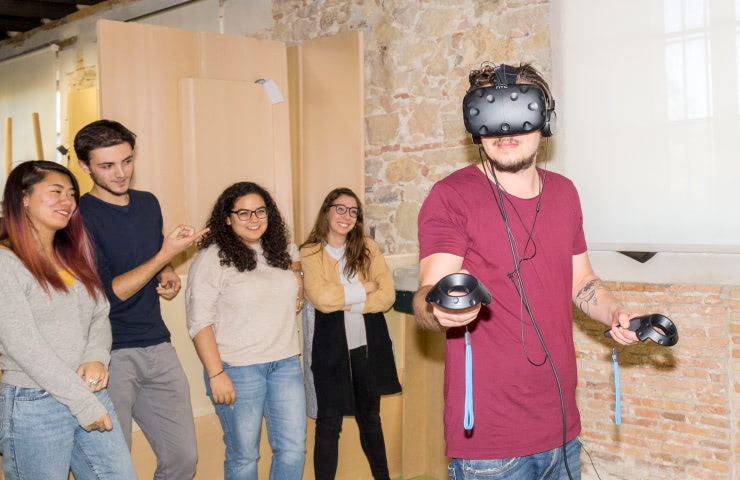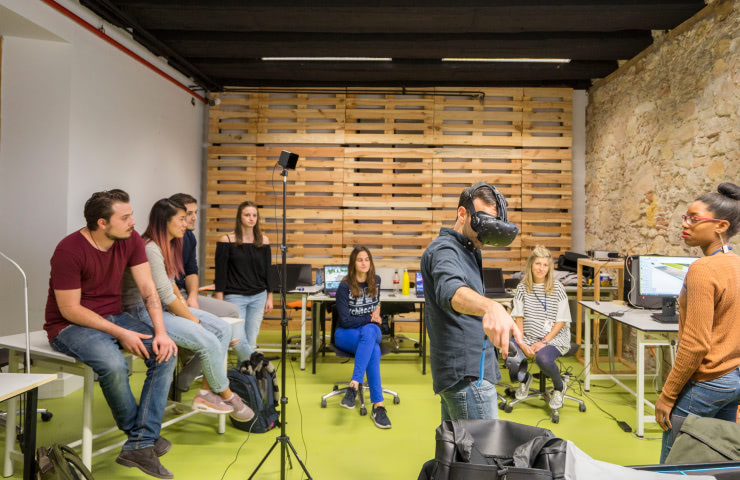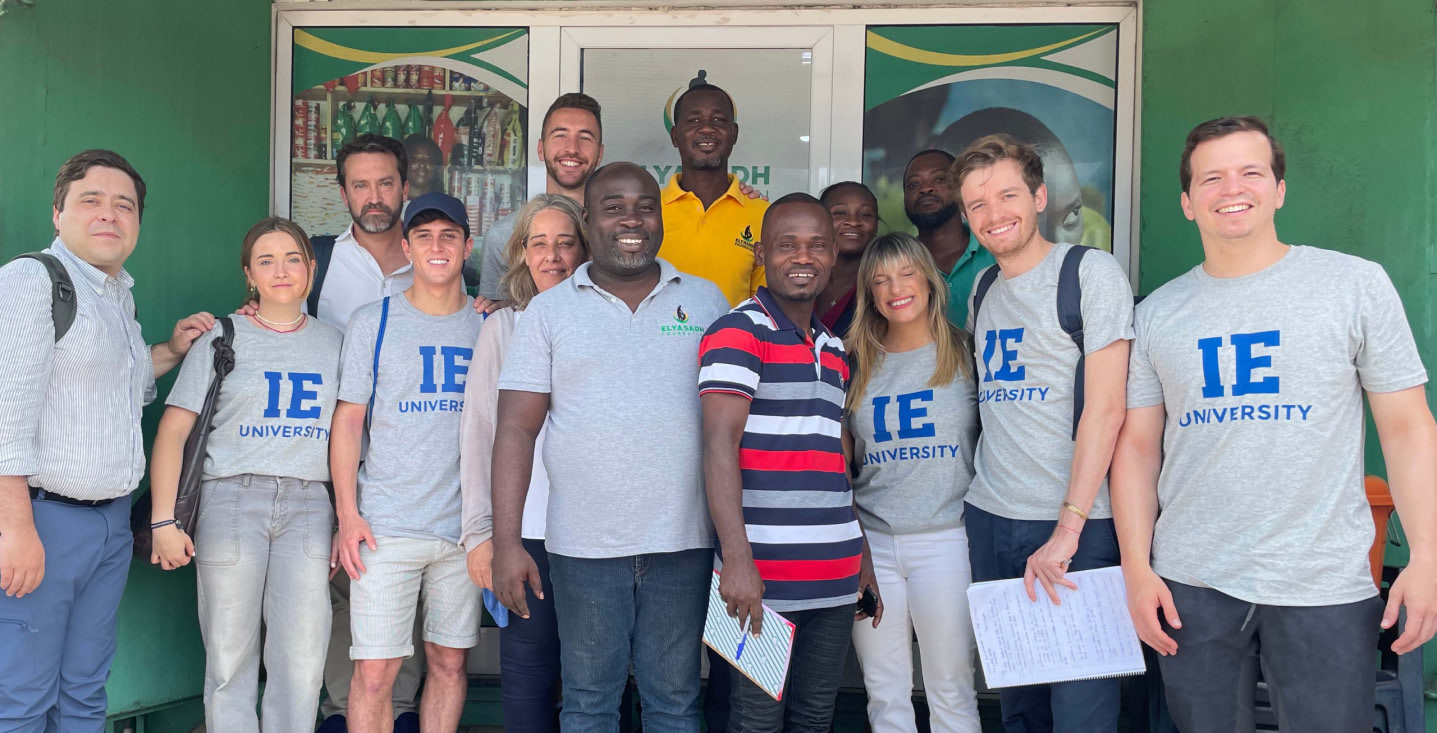08/06/2022
IE University professors Antonio Aloisi, Norberto de Andrade and Rubén Blanco gathered virtually on May 10, 2022 for the masterclass “Metaverse: Artificial Intelligence and Regulation.” Offering their metaverse expertise, the professors dove into regulations, policies of this new ecosystem and the economic and sustainability opportunities that accompany its community.
Our world is rapidly shifting toward digital, with artificial intelligence, virtual reality and online platforms leading the transformation. The metaverse, an inclusive virtual space focused on social connection, is increasing in popularity across the board. As an institution that stays ahead of the curve, IE University recently held a masterclass directed at master’s students to discuss all things metaverse.
The three metaverse experts, Antonio Aloisi, professor at IE Law School, Norberto de Andrade, director of Global Digital Ethics and Artificial Intelligence Policies on Facebook and Rubén Blanco, professor at IE School of Human Sciences and Technology (HST), gave their perspectives and first-hand experiences with the ecosystem.
Key metaverse players
The landscape in the metaverse is vast, and world-class companies such as Decentraland (powered by ethereum blockchain), Meta (Facebook), Sandbox, Amazon, Microsoft and Zepeto have been working to improve their user experience in the metaverse community.
Professor Rubén Blanco, who has been working with companies associated with metaverse for almost four years, gave insight into how these key players have been working on application programming interfaces (API) to connect augmented reality with the digital world.
Currently, a lot of companies are working on either the pure metaverse or creating different elements in the ecosystem to improve interoperability and accessibility.

This multifaceted ecosystem will provide new channels for gaming and socialization, and will revolutionize technology to create a world where physical limits are meaningless.
A safe and thriving space
Although there are obvious key players within the metaverse, there are a number of policy focus areas designed to ensure players are contributing and building the space in a responsible way. This focus will ensure that not just one company will take over the metaverse, but it will function smoothly with interoperability.
Norberto de Andrade, global policy lead for digital and AI ethics at Meta and IE University professor, explains that the ecosystem brings about economic opportunity by giving people more of a choice and encouraging competition. He goes on to say, “When bringing this vision to reality, and to maintain a thriving digital economy around the metaverse, we’re really making sure that the metaverse is not built by one company and that we’ll rely on robust interoperability across services so people can experience the metaverse from the variety of these digital platforms in a smooth way.”
Antonio Aloisi adds his insight about the opportunities presented by the metaverse. “The metaverse should also be seen as a workplace in terms of enhancing opportunity and working remotely in the infrastructure provided by the ecosystem.” As a full-time professor, Antonio’s current project focuses on the impact of algorithms and management of AI within the workplace. Noting that we should look at AI as its own entity.
We should think of AI as a general-purpose technology—something that can operate on its own and can be embedded in the infrastructure – Antonio Aloisi.
The governing elements
At Meta, Norberto leads the team that works specifically on AI policy and governance. As the metaverse is designed to be an area that feels safe, people will be given access to platform-level tools that allow them to take action or get help when they see something they aren’t comfortable with. In pursuit of this initiative, many policies will be put in place for safety and integrity features to manage the experience, including system control and oversight.
There is a lot of legal research that needs to be done to make the laws applicable. We should do experimentation before regulations are enacted and also understand what works best with users.
Continuing with the policies, Rubén Blanco explains that they are starting to work with the regulation of web 3.0, one of the basic software systems within the metaverse. Blanco mentions that the price of VR glasses and headsets is being regulated to bridge the space between the users and the metaverse, while simultaneously increasing inclusivity.
Antonio adds that the metaverse should be leveraging technology to improve the status quo and ensure that human biases and double standards are not embedded into the space.

We should be able to draw a pattern of consistency between regulation and innovation – Antonio Aloisi.
Are we ready for the metaverse?
The metaverse will reframe the human experience. Rubén explains, “The latest technologies will be embedded to enhance the 3D experience, interactions and virtual reality of the communities networking.” And according to all three experts in this masterclass, a multitude of sensory and optics will be generated to enable a complete and immersive experience in a space that converges the physical and digital, allowing users to interact with the world in a different way.
AI is the primary engine that will be powering the vision of the metaverse – Norberto de Andrade.
The masterclass ended with a short Q&A where master’s students were able to dive into specific areas of confusion, allowing the professors to shed additional light on any gray areas.









